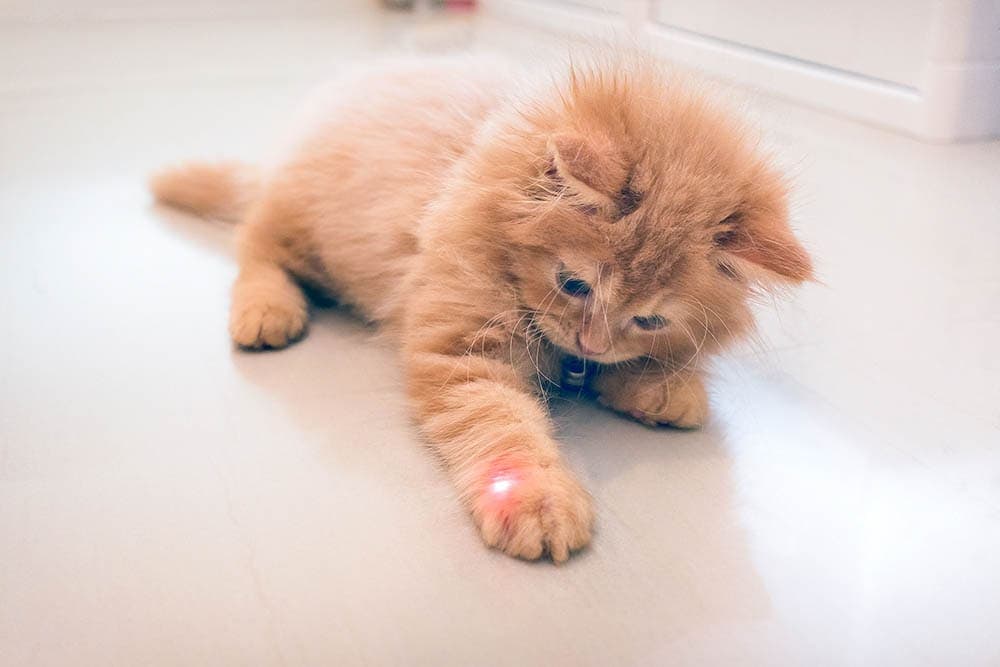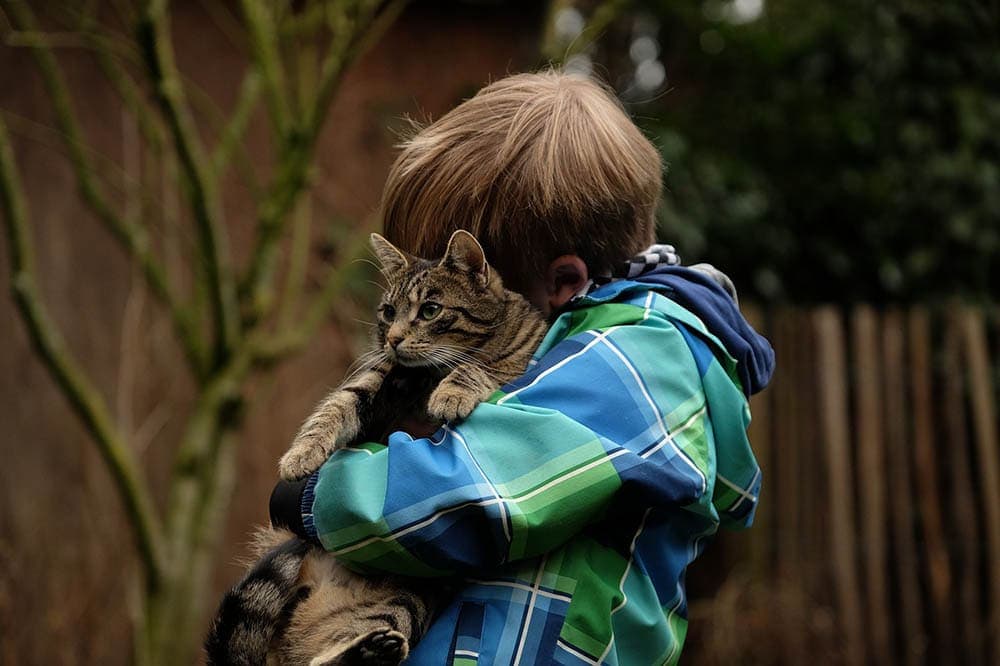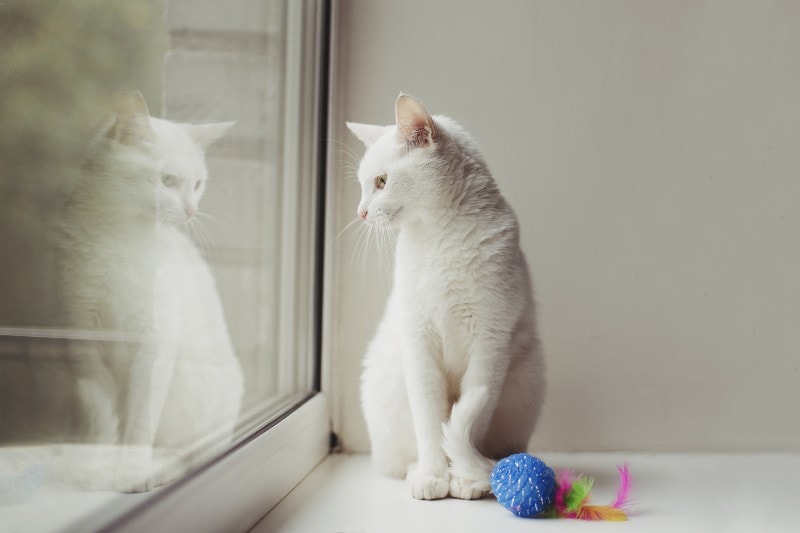Are Deaf Cats More Affectionate? Interesting Facts & FAQ

Updated on

Cats with disabilities can make wonderful pets, just like their able counterparts. Everything from partial paralysis to blindness to a missing limb can be addressed with veterinary intervention, adaptive equipment, and a little extra love and attention.
Deafness, though an invisible disability, is the same. Deaf cats can be just as good a pet as hearing cats, and deaf cats may even be more affectionate because of different communication. While there’s no research on the subject, deaf cats may use more touch and vibration to understand their environment, just like a deaf human.
 How to Tell if Your Cat Is Deaf
How to Tell if Your Cat Is Deaf
One of the challenges with deafness is that it’s not always obvious. Some cats don’t respond to verbal commands, even with perfect hearing. However, you may notice your cat doesn’t react to everyday sounds, such as loud traffic, kitchen sounds, or dogs barking.
Cats hear high-frequency sounds better than people, and that skill is the first to go when a cat is losing its hearing. This makes it more challenging to notice when your cat’s hearing is failing.
- Loud meowing. When cats can’t hear themselves, they may increase vocalization to feel the vibrations or because they don’t know how loud they are.
- Not responding to ambient sounds, like calling its name or opening food.
- No longer caring about sounds that were scary, such as fireworks or thunder.
- Not noticing when you come home or enter a room.
- Sleeping more deeply and for longer periods.
- Neediness or clinginess.
While some of these symptoms may be a cat just ignoring you, as cats do, several of them may mean a vet visit is in order.
Do Cats Lose Hearing with Age?
Just like humans, cats may lose their hearing as they age. Hearing is created when air vibrations stimulate the eardrum and move the tiny bones of the inner ear. This movement vibrates hair cells that are suspended in fluid in the inner ear. As these hair cells move up and down, they bump into the structure and bend. This opens the tips, and chemicals rush into the cells, creating an electrical signal that’s sent to the brain.
With age, these individual components can become damaged or inflamed, impacting hearing. But hearing loss doesn’t only occur in older cats. Hearing can be damaged by consistent, loud sounds over time, like music or direct trauma to the ear’s structures.

Communicating With a Deaf Cat
Without hearing, deaf cats need to rely on other senses, like touch and vision. They may not be able to hear you when you call for them or open a can of cat food, but they can see movement and react to touch and vibration.
- A laser cat toy can be used to catch your cat’s attention.
- Deaf cats can feel vibrations, so they can feel knocking on the wall, door, or floor.
- You can turn lights on and off as a cue for feeding time or alert it to your presence.
- If your cat is resting or facing away from you, be careful not to startle it. Use gentle touch or visual cues to let it know you’re there.
- Get a lot of cat toys and spend time playing with your cat to form a strong bond.
Caring for a Deaf Cat
Keeping a deaf cat isn’t much different than a hearing cat. The most important thing to remember is that deaf cats are missing a vital sense that they need to detect threats and find food. This isn’t a problem for a strictly indoor domestic cat, but it can be dangerous for an outdoor or stray cat. Always keep your deaf cat indoors where it’s safe and protected.
It’s also important to remember that deaf cats aren’t as easy to alert as hearing cats. They may be more nervous or anxious, which can turn to defensiveness or aggression if you startle them. Use visual or vibration cues and gentle touch to alert your cat and avoid scaring it.
Deaf cats may sleep more deeply than hearing cats since they don’t have any noises to keep them alert or wake them. Unless there’s a significant change in sleep patterns, this isn’t a cause for alarm.
Finally, deaf cats may be more vocal, needy, and affectionate with their owners. This could be due to feeling insecure without hearing or replacing the lost sense with increased touch. Remember to give your deaf cat plenty of love, attention, and playtime.

 Conclusion
Conclusion
A deaf cat can live a happy, rewarding life and be a great pet for its owner. These cats don’t need much more than any other cat in terms of care, as long as their owners stimulate their other senses. If your deaf cat becomes more affectionate, just enjoy all the extra love!
Featured Image Credit: Veera, Shutterstock
 How to Tell if Your Cat Is Deaf
How to Tell if Your Cat Is Deaf









